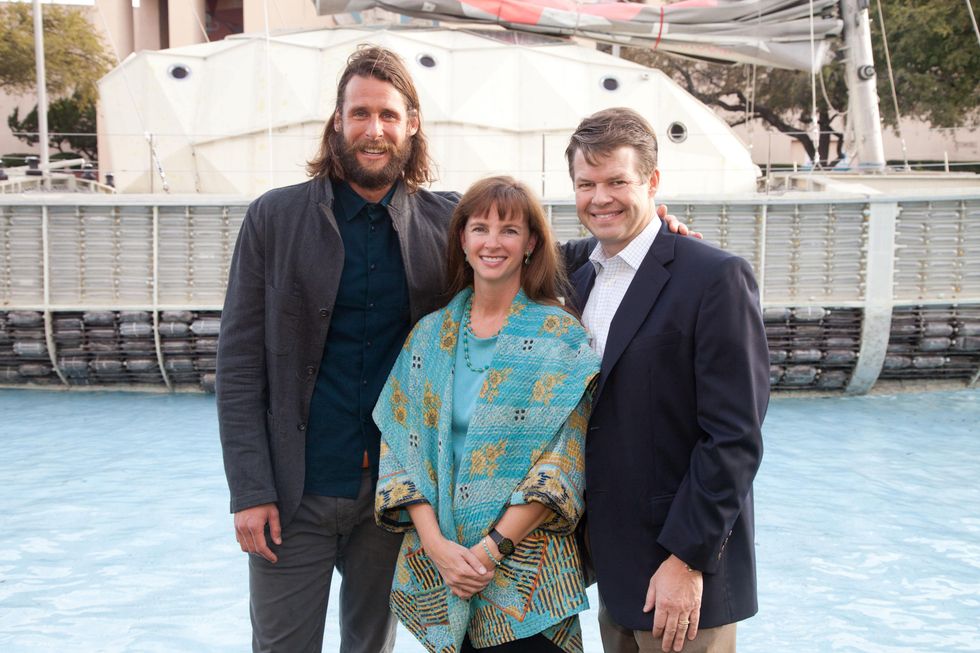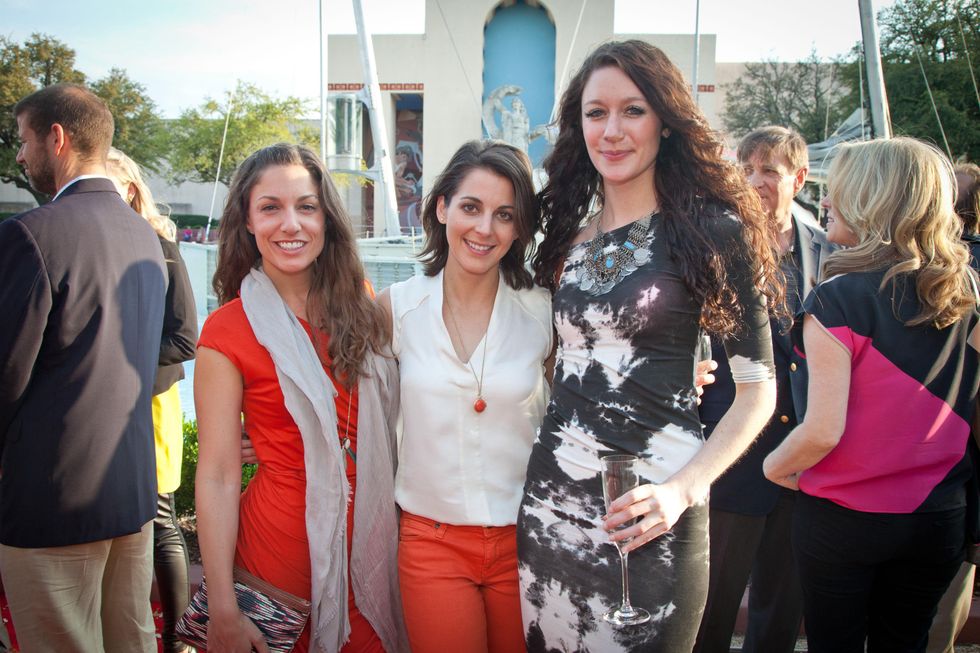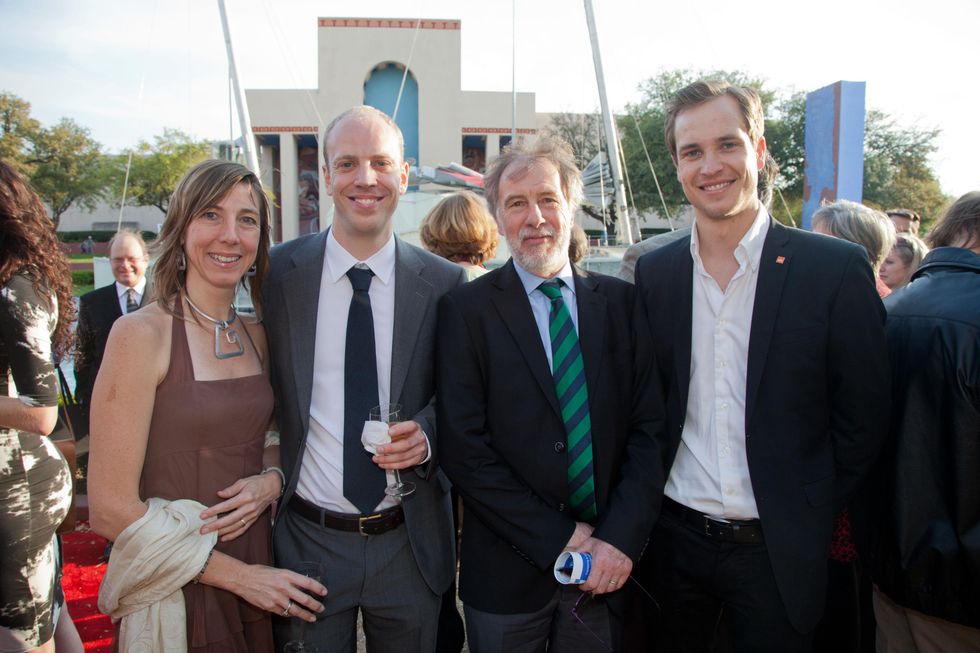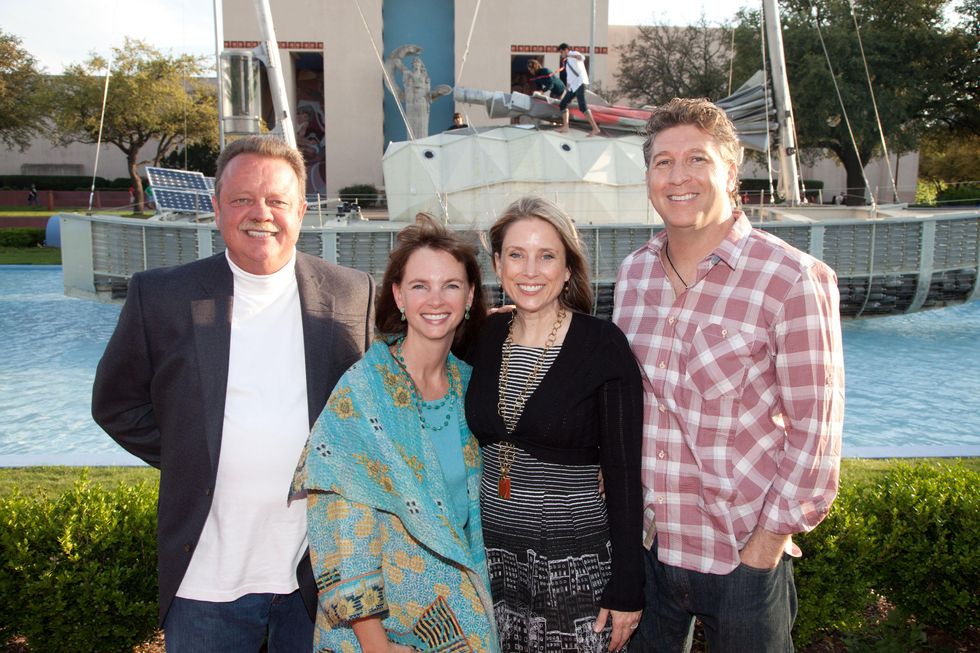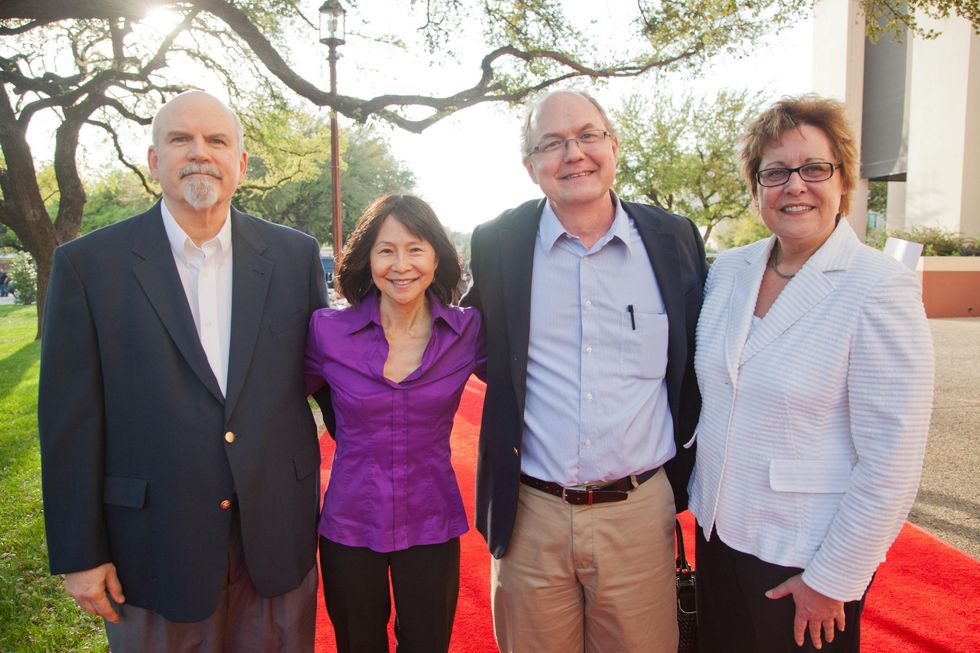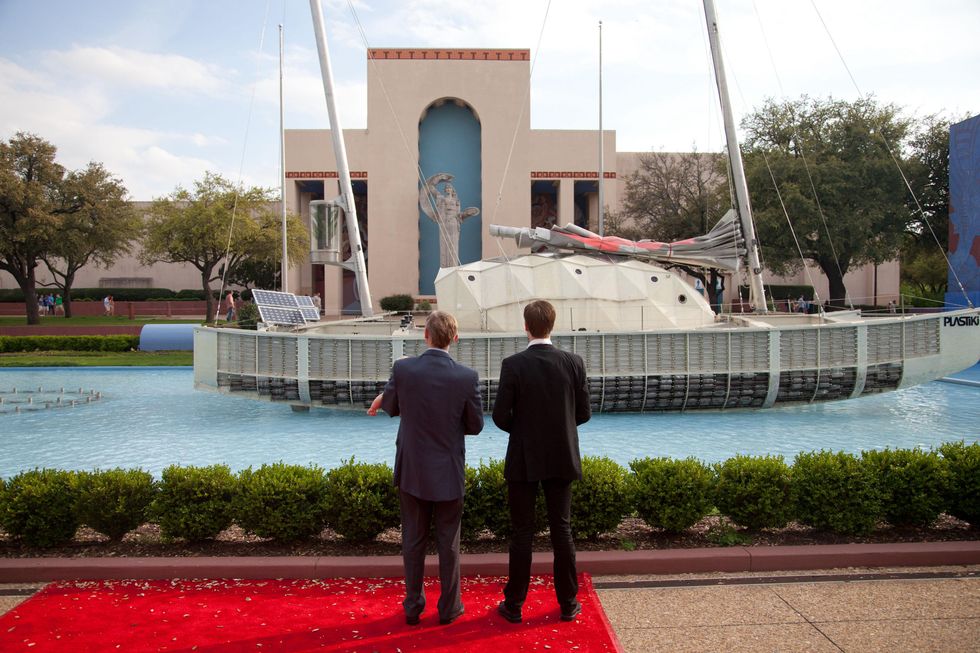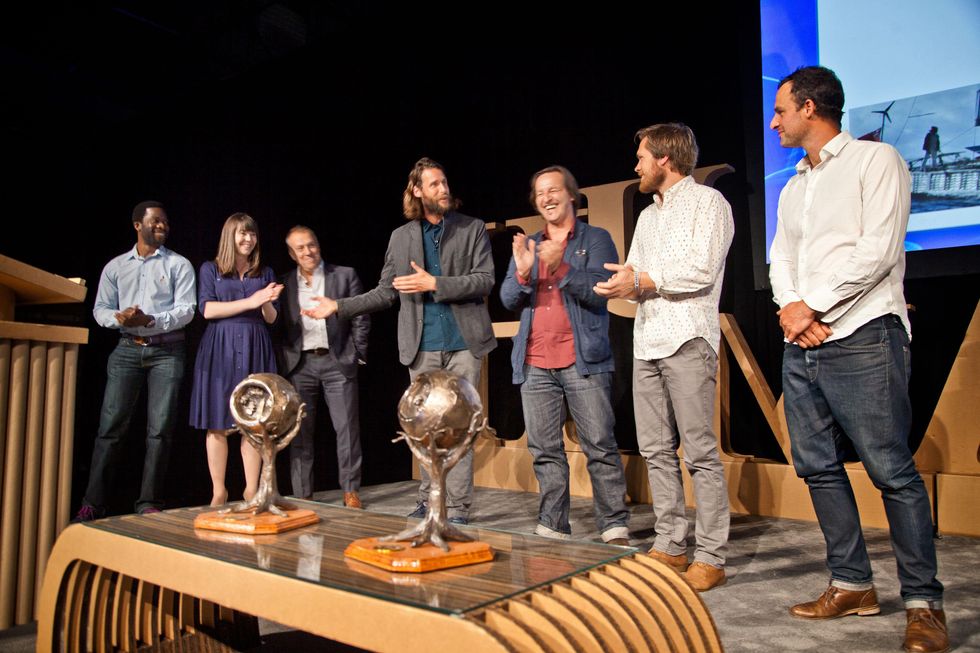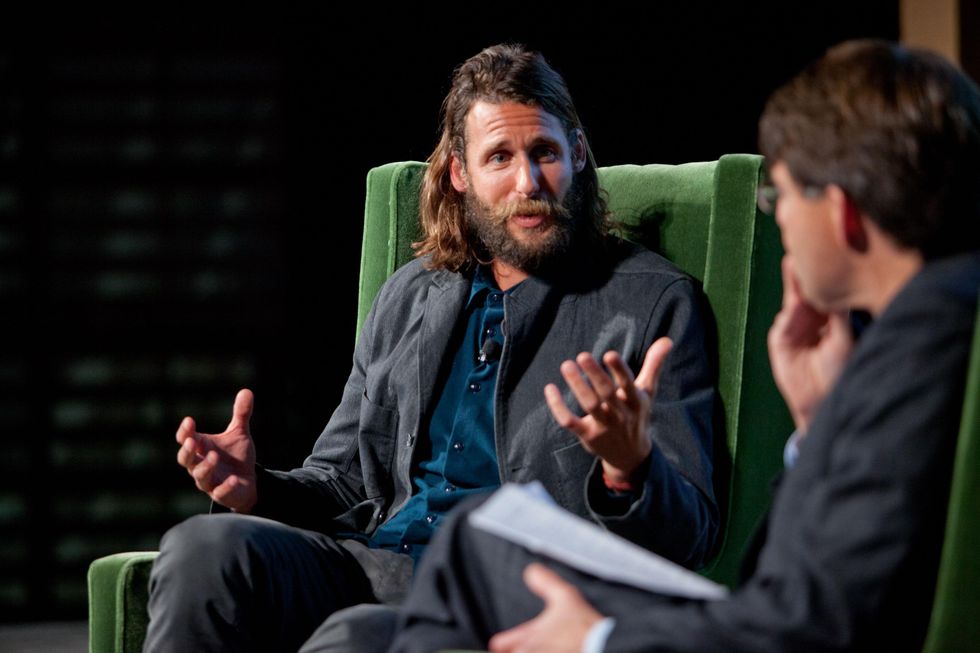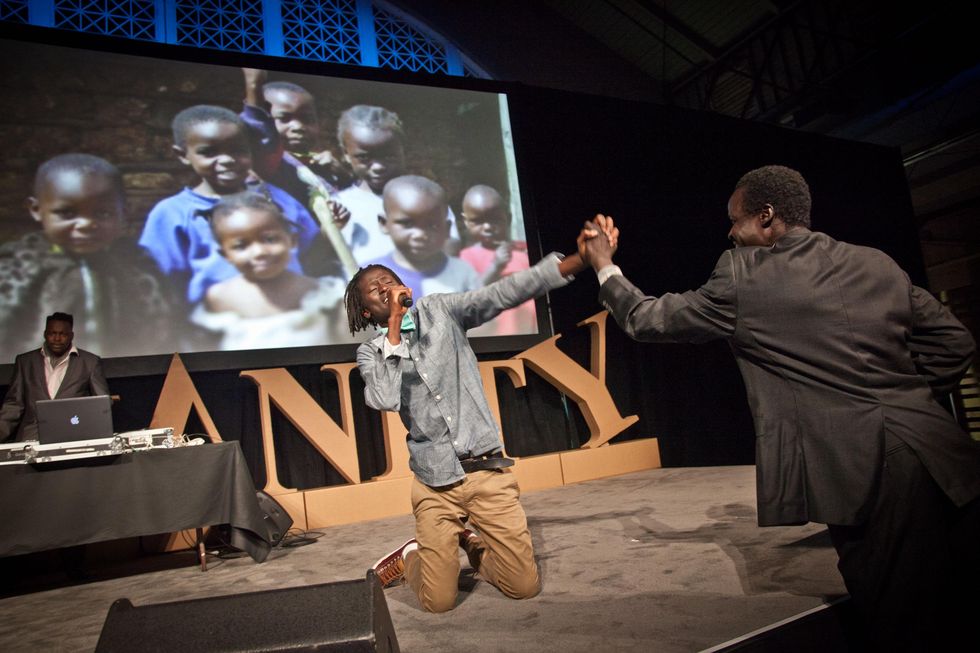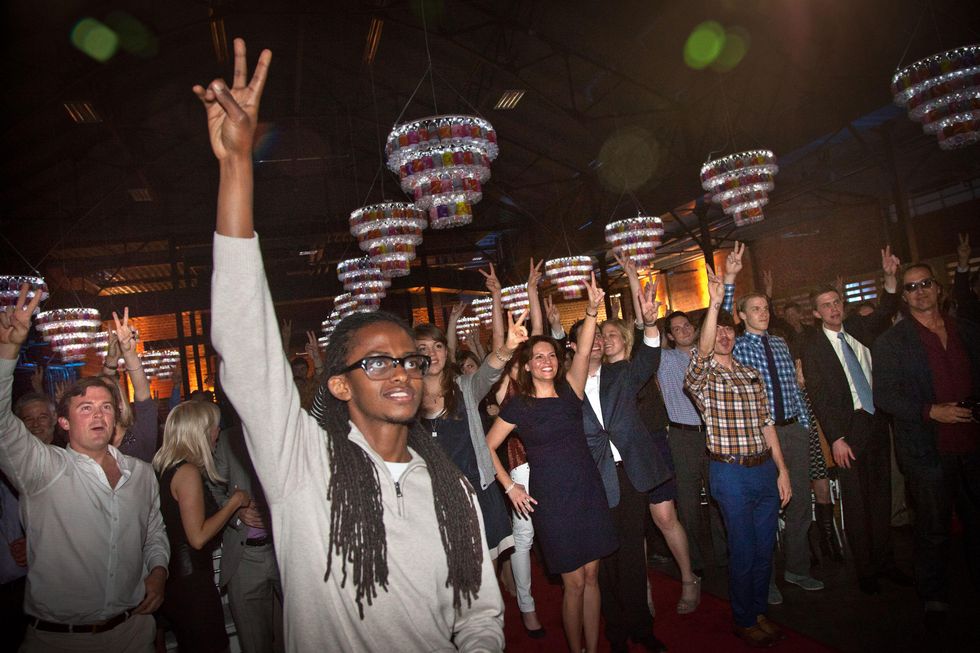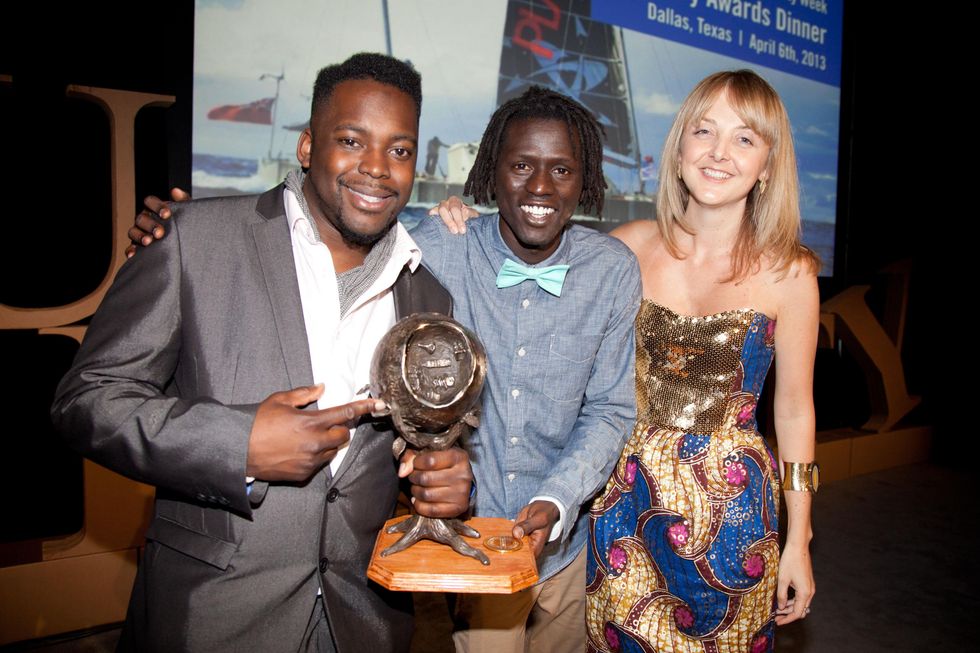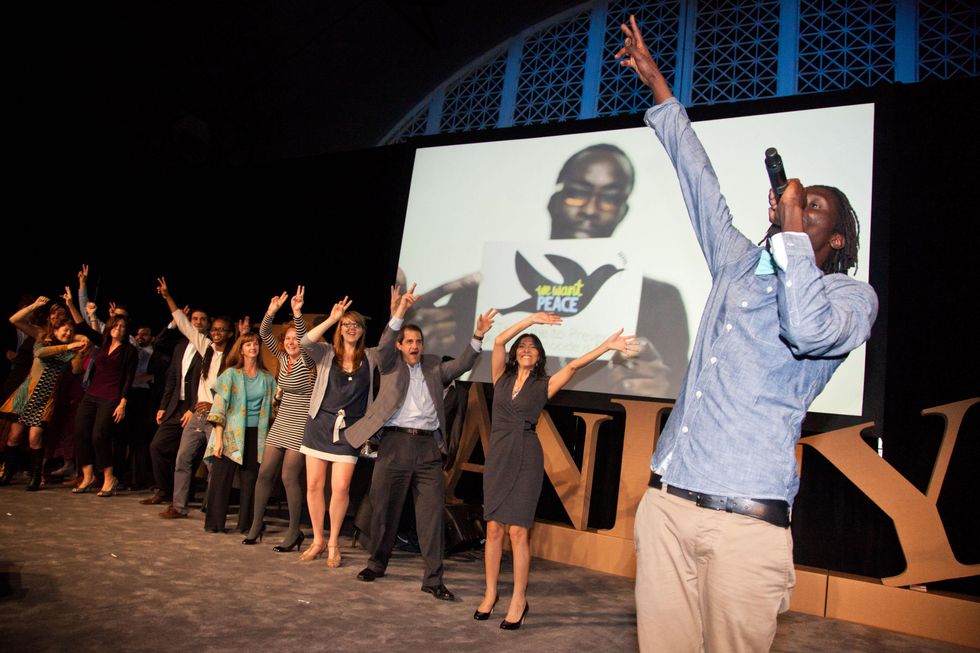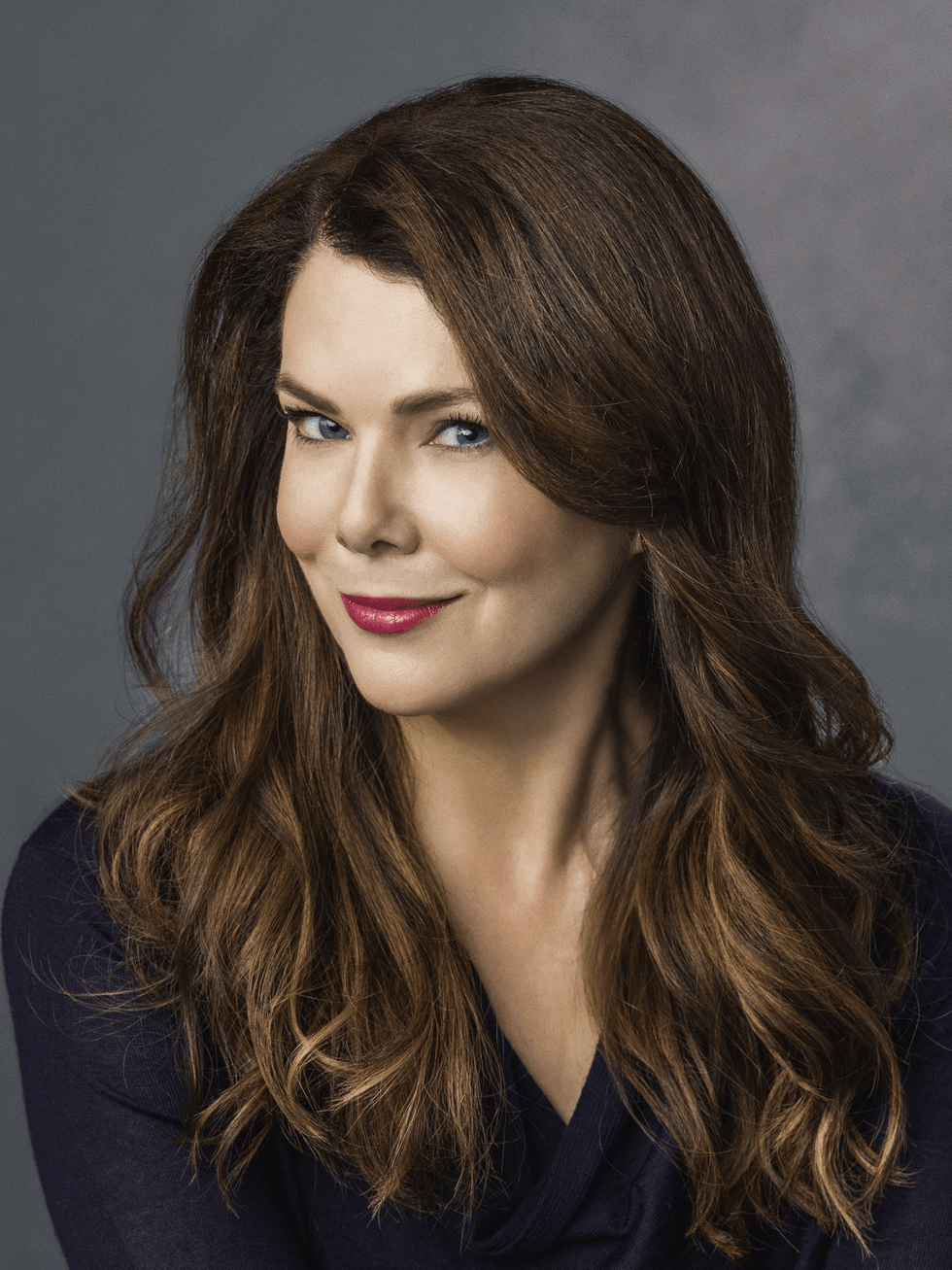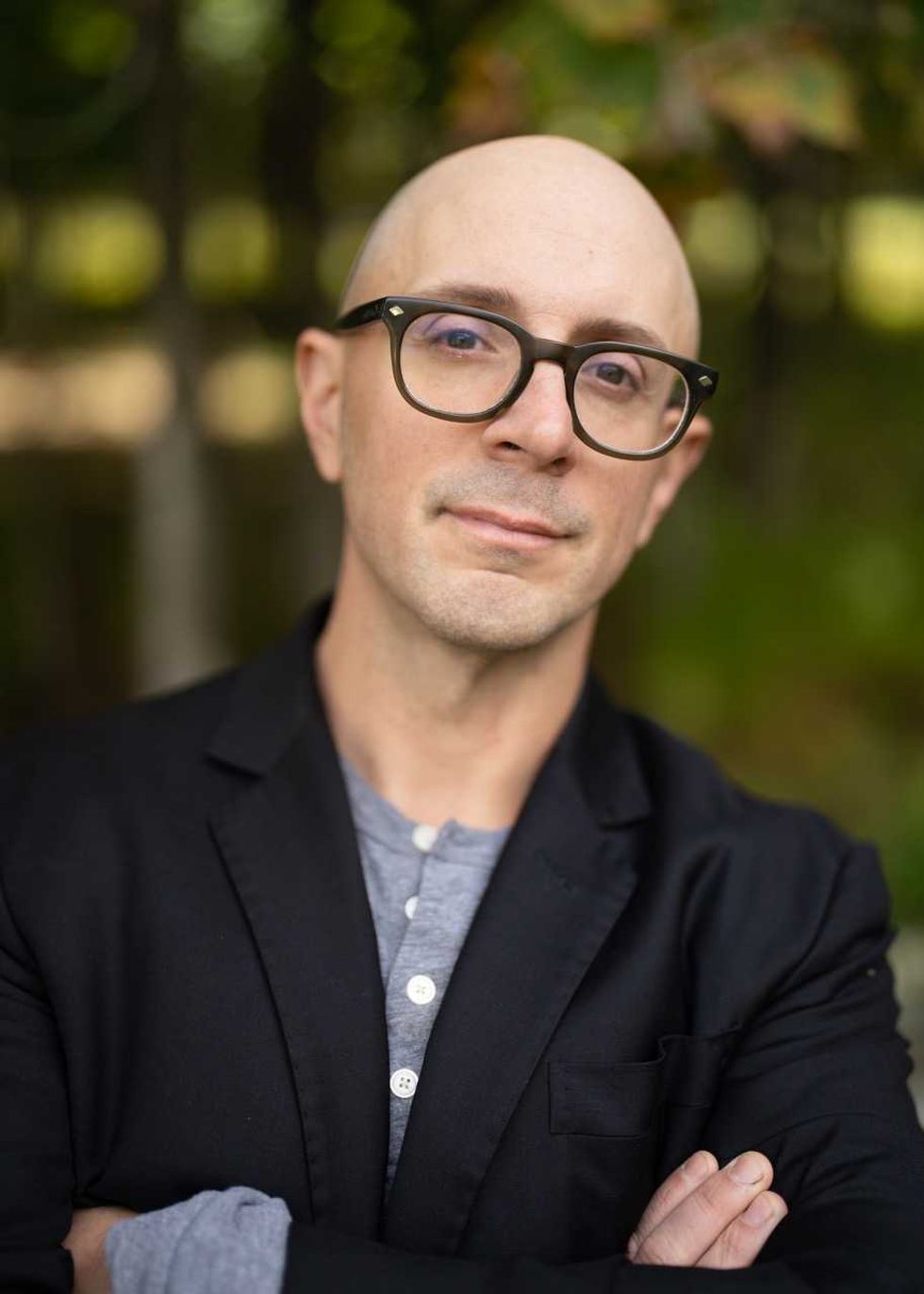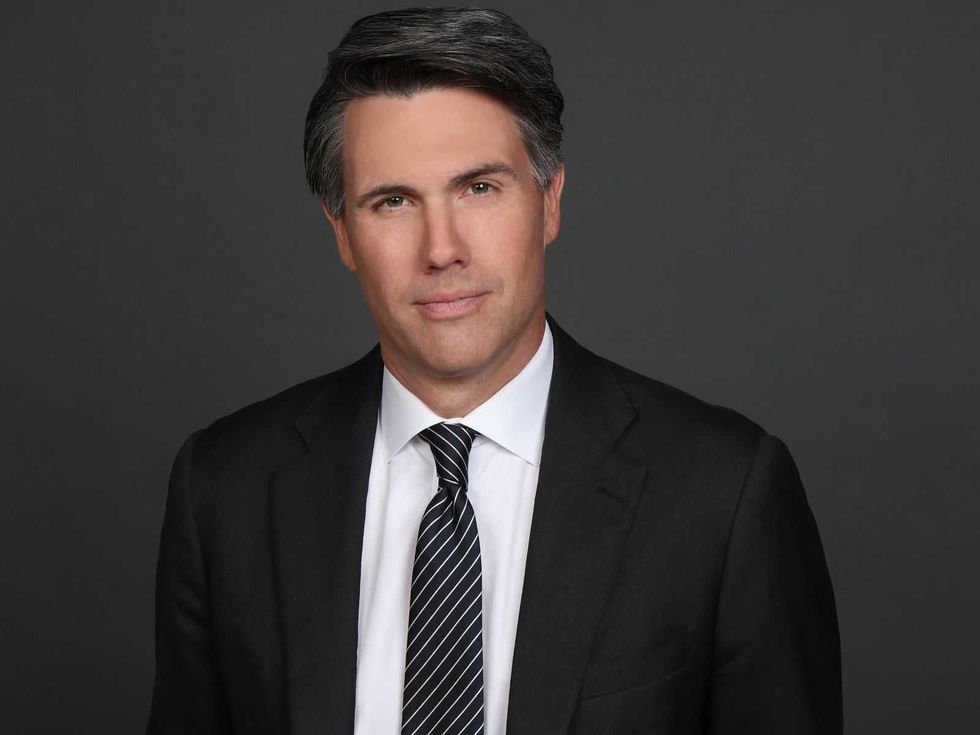Water Works
British adventurer and his plastic ship thrill at Engineering & Humanity Week awards
It’s not every day you see a 60-foot catamaran made from 12,500 plastic bottles. Even more rare is the day you see that boat in the “waters” of Fair Park.
Such was the case at the awards dinner and opening-night celebration for the third annual Engineering & Humanity Week, themed “Water: Ripple Effects,” presented by the Hunt Institute for Engineering & Humanity at SMU and the ROi Project.
Prior to a formal dinner and presentation, guests got to watch as the Plastiki, the vessel belonging to British adventurer and ecologist David de Rothschild, was anchored outside the Centennial Building.
Once inside, amiable dinner co-chairs Stephanie and Hunter Hunt welcomed environmentally minded guests — including Christy Coltrin, Brad Oldham, Mary McDermott Cook, Dale Sellers, Jessie Zaragaza, Alex Betts, Jean Francois Durieux, Erik Abild, Lynn McBee and Alfonso Montiel — as they dined underneath awesome chandeliers fashioned from recycled plastic bottles.
The Hunts also reminded supporters of the mission of this year’s Engineering & Humanity Week: to bring together the world’s most dedicated people to confront one of our planet’s most daunting issues: water.
Rothschild himself was in Dallas to receive the 2013 Visionary Award, spread his environmentalist gospel and share stories about his Plastiki adventures. In 2010, the National Geographic Emerging Explorer led a crew of scientists, sailors, thought leaders and creatives on an 8,000-mile ocean trek from San Francisco to Sydney on his vessel made of recycled waste products.
Along the way, they visited a swirling patch of trash the size of Texas. Rothschild’s goal was to shed light on the dangers of polluting the ocean and spread a more powerful message: waste as a resource. Rothschild has gifted Plastiki to Dallas, which moves to the plaza at the Perot Museum of Nature and Science this summer while the Hunts search for its permanent home.
In a lively discussion with Jeffrey Ball, former environment editor at the Wall Street Journal, Rothschild, a self-proclaimed “optimistic pessimist,” explained what he believed to be the challenges of the environmental movement.
“We articulate the demise, rather than the solutions,” he said. Instead of telling people what to do, we are busy telling them what not do, he argued. And, in perhaps his most colorful commentary of the evening, he asked the audience to compare plastic and diamonds.
“Both last forever,” he said. “Diamonds just have a much better marketing campaign.”
Joking aside, Rothschild said his Plastiki trip “failed horribly,” simply because there is more plastic today than when they started, but they knew that going in. More important, he said, is that “[Plastiki] is a metaphor for teamwork” and unlocking human potential.
It seemed unlikely that anyone could top the passionate and hunky Rothschild, but there was still another award to present. This one, the inaugural Humanitarian Award, went to Emmanuel Jal, a former child soldier in Sudan who found a new life as a leading hip-hop artist, author, and advocate for children in developing nations whose childhoods are robbed from them because of violence and extreme poverty.
Thanks to the documentary and autobiography of his life, both titled War Child, and his work through nonprofits Gua Africa and We Want Peace campaign, Jal has reached audiences of millions, and his charities provide scholarships and education to Sudanese war survivors and the most deprived children in Nairobi.
Of course Jal could not accept his award without a show. And the man who performed at Nelson Mandela’s 90th birthday celebration and the One World Concert for the Dalai Lama brought down the house in Fair Park that night.
Through his message of peace and hope, Jal, together with DJ Silvastone and a string quartet from SMU’s Meadows School of the Arts, got everyone on their feet — and many on the stage — for a concert that no one in attendance will soon forget.
